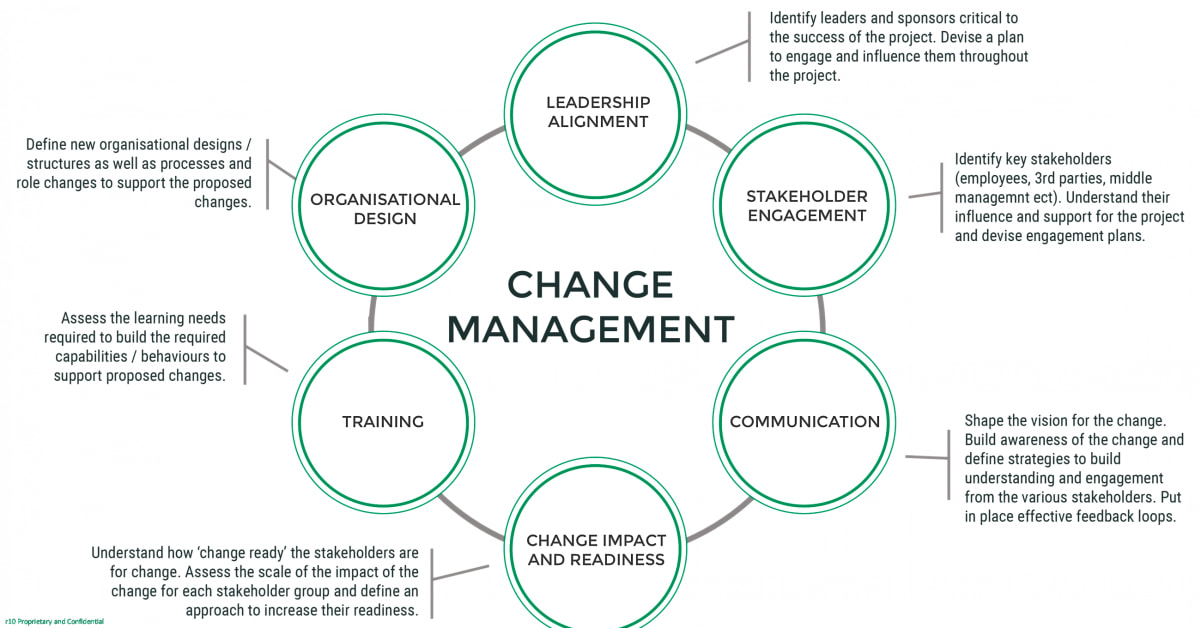In today’s ever-changing business landscape, the ability to effectively manage risks is essential for any consulting firm. With the constant evolution of technology, globalization, and market fluctuations, businesses face a wide range of risks that can significantly impact their operations and overall success. This is where risk management comes into play, providing a systematic approach to identify, assess, and mitigate potential risks that may arise in any business endeavor. In this complete guide, we will explore the key concepts and strategies of risk management specifically tailored for business consultants. From understanding the different types of risks to implementing effective risk management plans, this article will equip you with the necessary knowledge and tools to help your clients navigate their way to success. So, let’s delve into the world of risk management and how it plays a crucial role in the realm of business planning and analysis and strategic planning.
To begin, let’s define what risk management is. Risk management is the process of identifying, assessing, and controlling potential risks that may impact a business’s ability to achieve its objectives. As a business consultant, your role is to help clients understand and mitigate these risks through various strategies and techniques.
In today’s rapidly changing business landscape, it is crucial for businesses to have effective risk management strategies in place. For business consultants, understanding and implementing risk management techniques is essential in helping clients improve their processes and strategies. With the increasing complexity and uncertainty in the business world, having a solid risk management plan is more important than ever.
There are several key steps involved in the risk management process. The first step is identification, which involves identifying all potential risks that could affect the business. This could include internal risks such as operational inefficiencies or external risks such as changes in the market or industry regulations.
The next step is assessment, where the identified risks are evaluated based on their likelihood and impact on the business. This step helps prioritize which risks need immediate attention and which can be addressed at a later time.
Once risks have been identified and assessed, the next step is control. This involves developing and implementing strategies to mitigate or minimize the impact of identified risks. This could include implementing new processes, procedures, or technologies to address potential risks.
It is important for business consultants to work closely with their clients during the risk management process. By understanding the client’s goals, objectives, and operations, consultants can better identify potential risks and develop customized solutions that align with their client’s needs.
The benefits of effective risk management for businesses are numerous. It not only helps protect businesses from potential threats but also allows them to make more informed and strategic decisions. By identifying and addressing risks, businesses can improve their processes, reduce costs, and increase profitability.
In conclusion, risk management is a crucial aspect of business consulting. It involves identifying, assessing, and controlling potential risks to help businesses achieve their objectives. As a consultant, it is your responsibility to guide your clients through the risk management process and develop tailored solutions that meet their specific needs. By effectively managing risks, businesses can thrive in today’s ever-changing business landscape.
Common Misconceptions About Risk Management
In today’s rapidly changing business landscape, it is crucial for businesses to have effective risk management strategies in place. However, there are common misconceptions about risk management that can hinder its effectiveness. In this section, we will address these misconceptions and provide clarification on how risk management can truly benefit businesses of all sizes.
Different Types of Consulting Services Available
In today’s rapidly changing business landscape, it is crucial for businesses to have effective risk management strategies in place. For business consultants, understanding and implementing risk management techniques is essential in helping clients improve their processes and strategies. As a business consultant, it is important to understand the various types of consulting services available and how they can benefit your clients. In this section, we will explore the different types of consulting services, including management consulting, strategy consulting, and financial consulting.
Why Risk Management is Important for Business Consulting
In today’s rapidly changing business landscape, risk management is more important than ever for business consulting. It involves identifying, assessing, and prioritizing potential risks that could impact a business, and taking steps to mitigate or manage those risks. This process not only helps businesses protect their assets and avoid potential financial losses, but it also enables them to make more informed and strategic decisions.
For business consultants, understanding and implementing risk management techniques is crucial in helping clients improve their processes and strategies. By identifying potential risks and developing effective risk management plans, consultants can help businesses become more resilient and successful.
Regardless of the size or industry of a business, risk management should be a top priority. In today’s fast-paced and competitive market, even small risks can have significant consequences. By proactively managing risks, businesses can avoid costly mistakes, maintain their reputation, and stay ahead of the competition.
Benefits of Risk Management for Businesses
In today’s rapidly changing business landscape, effective risk management is crucial for businesses of all sizes. By implementing risk management strategies, businesses can experience a range of benefits that can help improve their processes and strategies.
One of the key benefits of risk management is increased efficiency. By identifying potential risks and implementing measures to mitigate them, businesses can avoid potential disruptions and delays in their operations. This leads to smoother and more efficient processes, saving businesses time and resources.
Risk management also allows businesses to save costs. By identifying and addressing potential risks, businesses can avoid costly mistakes and financial losses. This can also lead to improved financial performance and stability.
Another benefit of risk management is improved decision-making. By having a thorough understanding of potential risks and their impact, businesses can make more informed and strategic decisions. This can help them stay ahead of competitors and adapt to changing market conditions.
Overall, implementing effective risk management strategies can greatly benefit businesses in today’s competitive business landscape. It not only helps them minimize potential risks, but also improves efficiency, saves costs, and enhances decision-making capabilities.
Risk Management Techniques
In today’s rapidly changing business landscape, it is crucial for businesses to have effective risk management strategies in place. For business consultants, understanding and implementing risk management techniques is essential in helping clients improve their processes and strategies. In this section, we will outline some common risk management techniques that business consultants can use to help clients mitigate risks and improve their overall processes and strategies.
One of the most important risk management techniques is conducting thorough risk assessments. This involves identifying potential risks and their likelihood of occurring, as well as the impact they may have on the business. By conducting regular risk assessments, consultants can help clients stay ahead of potential risks and develop strategies to mitigate them.
Another key technique is creating a risk management plan. This plan should outline specific steps to take in the event that a risk does occur, including who is responsible for addressing it and what resources are needed. By having a well-developed plan in place, businesses can minimize the impact of risks and maintain continuity in their operations.
Communication and collaboration are also crucial aspects of effective risk management. Business consultants can help facilitate open communication between different departments and teams within a company, ensuring that everyone is aware of potential risks and working together to address them.
Finally, ongoing monitoring and review are essential for successful risk management. Consultants should regularly review and update risk management strategies as the business landscape evolves and new risks arise. This allows businesses to stay agile and adapt quickly to any changes or challenges.
How Risk Management Fits into Business Planning and Analysis
Risk management is an integral part of business planning and analysis, providing valuable insights and guidance for companies looking to navigate through the uncertainties of the business world. By incorporating risk management into their overall strategy, businesses can minimize potential threats and capitalize on opportunities for growth.
One of the key ways in which risk management fits into business planning and analysis is by providing a systematic approach to identifying, assessing, and managing risks. By conducting a thorough risk assessment, businesses can gain a better understanding of the potential risks they may face and develop strategies to mitigate these risks.
In addition, risk management can help businesses make informed decisions by providing them with a clearer picture of the potential consequences of their actions. By considering the potential risks and rewards associated with different courses of action, businesses can make more strategic and effective decisions.
Furthermore, incorporating risk management into business planning and analysis can help businesses create more robust and resilient strategies. By identifying potential risks and developing contingency plans, businesses can be better prepared for unexpected events and minimize the impact on their operations.
Ultimately, risk management is an essential component of business planning and analysis, helping businesses create a solid foundation for growth and success. By understanding how risk management fits into the overall process, business consultants can provide valuable insights and guidance to their clients, helping them improve their processes and strategies for long-term success.
The Role of Business Consultants in Risk Management
Business consultants play a crucial role in risk management for their clients. With their expertise in business planning and analysis, they are well-equipped to identify potential risks and develop effective strategies to mitigate them.
One of the key responsibilities of a business consultant is to conduct thorough risk assessments for their clients. This involves analyzing the client’s business processes, operations, and market trends to identify any potential risks that could impact their success. By conducting these assessments, business consultants can help their clients understand the potential consequences of these risks and develop plans to address them.
In addition to risk assessments, business consultants also play a vital role in implementing risk management strategies. They work closely with their clients to develop and implement risk management plans that are tailored to their specific needs and goals. This can involve creating new policies and procedures, conducting training sessions, and providing ongoing support and guidance.
Furthermore, business consultants can also add value by helping their clients improve their overall business processes and strategies. By identifying areas for improvement and implementing effective risk management techniques, consultants can help businesses become more efficient and profitable.
In today’s rapidly changing business landscape, the role of business consultants in risk management has become more important than ever. With their expertise and experience, they can provide valuable insights and support to help businesses navigate potential risks and thrive in a competitive market.
Tips for Effective Risk Management
Business consultants play a vital role in helping businesses improve their processes and strategies. One crucial aspect of this is implementing effective risk management strategies. Here are some tips for business consultants to effectively implement risk management strategies for their clients:
- Understand the client’s goals and objectives: Before developing a risk management plan, it is important for consultants to have a thorough understanding of their client’s goals and objectives. This will help them tailor their approach and prioritize risks accordingly.
- Identify potential risks and prioritize them: The first step in risk management is identifying potential risks. Business consultants should work closely with their clients to identify all possible risks, both internal and external. Once identified, these risks should be prioritized based on their potential impact on the client’s goals and objectives.
- Involve key stakeholders in the risk management process: It is important to involve key stakeholders in the risk management process. This includes not just the client, but also other relevant parties such as employees, suppliers, and customers. Their input and expertise can provide valuable insights and help create a more comprehensive risk management plan.
- Continuously monitor and review risks: Risk management is an ongoing process. Business consultants should continuously monitor and review risks to ensure that the plan remains effective and relevant. This includes regularly updating risk assessments and making necessary adjustments to the risk management plan.
- Communicate effectively with the client throughout the process: Communication is key in any successful business relationship, and this applies to risk management as well. Business consultants should maintain open and effective communication with their clients throughout the risk management process. This includes providing regular updates, addressing any concerns or questions, and seeking feedback.
Types of Risks in Business
In the world of business, risks are inevitable. Every decision and action a company takes comes with a certain level of risk, and it is important for business consultants to understand and manage these risks effectively.
There are several types of risks that businesses face on a daily basis. These risks can be categorized into five main categories: financial, operational, strategic, compliance, and reputational risks.
Financial Risks:
These risks involve the potential loss of money or assets. Examples of financial risks include market volatility, credit risks, and liquidity risks. Business consultants can help clients mitigate these risks by analyzing financial data and implementing strategies such as diversification and hedging.
Operational Risks:
Operational risks refer to potential losses caused by internal processes, systems, and human error. These risks can include equipment failures, supply chain disruptions, and cybersecurity threats. Business consultants can assist clients in identifying and managing these risks through process improvement and contingency planning.
Strategic Risks:
Strategic risks are those that arise from external factors such as changes in the market or industry. These risks can include new competitors, technological advancements, and shifts in consumer behavior. Business consultants can help clients anticipate and respond to these risks by conducting market research and developing strategic plans.
Compliance Risks:
Compliance risks refer to the potential legal or regulatory consequences that a business may face. These risks can include fines, penalties, or even legal action. Business consultants can help clients stay compliant by conducting audits and implementing policies and procedures to ensure adherence to laws and regulations.
Reputational Risks:
Reputational risks involve the potential damage to a company’s reputation, brand, or image. These risks can arise from negative publicity, customer complaints, or unethical behavior. Business consultants can assist clients in mitigating reputational risks by implementing crisis management plans and promoting positive public relations.
In conclusion, risk management plays a crucial role in the success of businesses of all sizes. As a business consultant, understanding and implementing effective risk management techniques is essential in helping your clients achieve their goals and objectives. By following the tips outlined in this article and staying up-to-date on the latest risk management strategies, you can add significant value to your clients and help them grow and thrive in today’s competitive business landscape.





